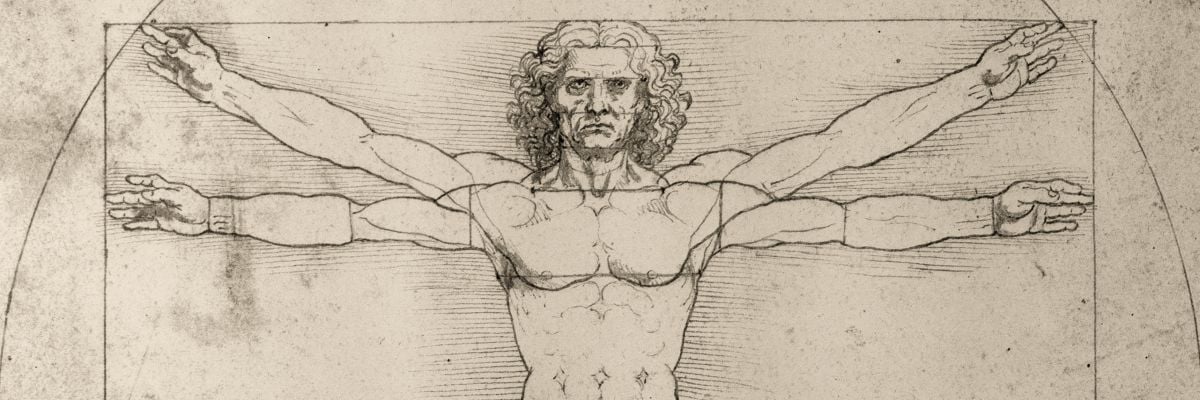
For many and obvious reasons, pushing back against moral relativism is fundamental to the work of apologetics. And there’s no small amount of thorough refutations of the notion that every person is a moral island unto himself.
Amidst all of the debate, however, there is an area that doesn’t receive much attention. Since it involves questions about human nature itself, it isn’t as popular among the bumper sticker and meme crowd.
Here’s the claim: If moral relativism is true—if there are no such things as fundamental moral truths that all human beings share in common—then we’re all different kinds of beings. And if we’re all different kinds of beings, then we all don’t have the same kind of nature—human nature. Not all humans are equally human.
I assume that most people wouldn’t go so far as to say we’re not all equally human. So let’s see if we can make good on the claim that if moral relativism were true, then not all humans would be beings of the same kind—the human kind.
Morality involves using our reason to make free choices in a way that achieves that which is truly good for us and avoids that which is bad. As Aquinas writes, “the first precept of law [is] that good is to be done and pursued, and evil [bad] is to be avoided” (Summa Theologiae I-II:94:6).
So the moral good is human behavior (acts that proceed from intellect and will) that facilitates the achievement of that which is good for us insofar as we’re human beings. Moral evil is human behavior that willfully directs us away from that which is good for us.
Moral relativism holds that there’s no objective truth about what’s morally good or bad. What’s good or bad for one person to do might not be good or bad for another. But given the definition of morality above, what’s good or bad for a person to do is dependent on what’s good or bad for a person, simply. Therefore, to say there’s no objective truth about what’s morally good or bad is to say there’s not objective truth about what’s good or bad for us, simply.
Now, when we use the terms good and bad we don’t use them to refer to good and bad as such. Rather, we use them to refer to a good or bad so-and-so, appealing to the nature or essence of something and what’s perfective of it.
For example, we say it’s good for an oak tree to spread its branches out from its trunk, sink its roots deep into the ground, take in nutrients from the soil, perform photosynthesis, and so on because that’s what an oak tree does given the kind of thing it is. It would be bad for an oak tree if it were to fail to do these sorts of things.
But we don’t say it’s good for an oak tree to have two eyes and trot and gallop. Nor do we say it’s bad for an oak tree to lack two eyes and be unable to trot and gallop. Why? Because these sorts of perfections don’t belong to what makes for a good oak tree; they belong to what makes for a good horse. This is why if a horse were to lack an eye, or be unable to trot and gallop due to a deformed or missing leg, we could speak of it as a bad or defective member of its kind.
So what’s good or bad for a horse is not the same as what’s good or bad for an oak tree because they are entirely different kinds of beings with different natures. On this account, the concepts of good and bad are indeed relative, but relative to what a thing is—a thing’s nature or essence.
As we’ve shown above, moral relativism necessarily entails the claim that there’s no objective truth about what’s good or bad for us, so good and bad are merely relative to an individual or group of individuals.
But if that were true, then that would entail that each of us (or the individuals of each group) is a different kind of being with a different nature.
We explained above that what’s good or bad for an oak tree is not the same as what’s good or bad for a horse because they’re different kinds of beings, beings with different natures or essences. This means the concepts of good and bad are intelligible only relative to what a thing is by its nature.
Here’s what follows: if we say the concepts of good and bad are intelligible only relative to an individual human being (or group of individuals), then that means each individual (or the individuals of each group) has a different nature or essence, or is a different kind of being. And if that’s true, then no individual (or group of individuals) is equally of the human kind—that’s to say, we’re not all human.
A moral relativist might retort, “But you too believe that some things are good or bad only relative to an individual? Surely, you don’t believe it’s good for your dentist to study philosophy and theology for an entire workday like it’s good for you to do. Should we say that you and your dentist are different kinds of beings?”
No, we shouldn’t say this. And the reason is that the good considered in this example is a good for me as an apologist and not for me insofar as I’m a human being. Similarly, the good considered for the dentist (practicing dentistry and not spending his day studying philosophy and theology) is a good considered for him as a dentist and not for him insofar as he’s a human being like me.
Contrast the good of studying philosophy and theology for an entire workday with the good of truth itself. Truth is the end or goal of an intellect. And the achievement of the end or goal of a power is its good (or perfection), along with the good (or perfection) of the individual whose power it is. So to say that truth is a good for me is to acknowledge that I have an intellect.
But to say that truth is not a good for my dentist is to imply that he doesn’t have an intellect. And if he doesn’t have an intellect, he’s not a human.
Moral relativism says there’s no good whatsoever that every human being ought to pursue, which means there’s no good, like truth, that’s commonly perfective of what we are. This means there’s nothing more fundamental than being a dentist or an apologist that unites my dentist and I as members of the same kind, the human kind.
So, to be a moral relativist in an absolute sense is to deny that all humans are the same kinds of beings. And if that’s true, then we all don’t have the same kind of nature, human nature.
That’s a conclusion that we can’t accept. For if we’re not all human, then perhaps those stronger beings that we call “humans” are superior and their might makes right. Let’s hope that’s an idea that most people of good will are willing to reject.



